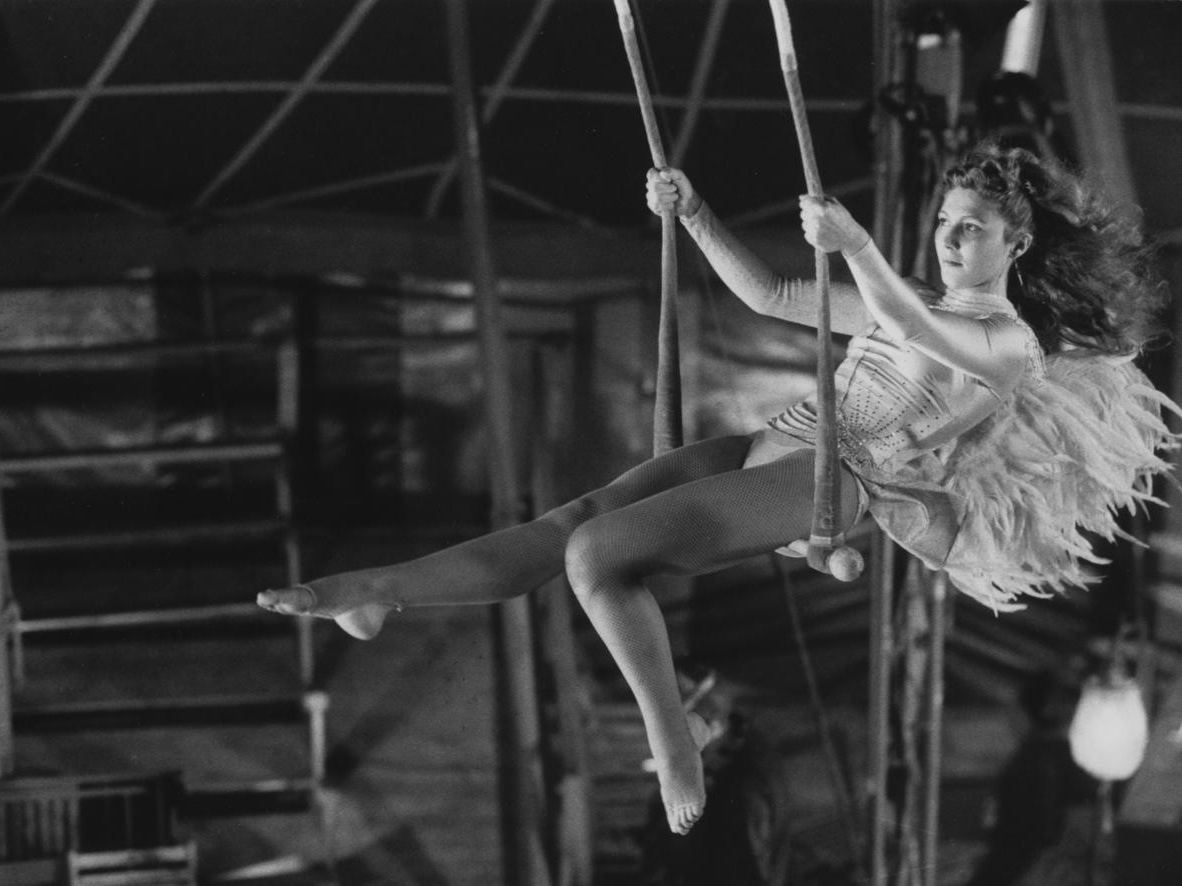
An angel tires of his purely ethereal life of merely overseeing the human activity of Berlin's residents, and longs for the tangible joys of physical existence when he falls in love with a mortal.
EN
Cinéaste: Kinski in Paris, Texas is largely a reflection of the fantasies of the men around her. The woman in Wings of Desire appears to have some degree of subjectivity of her own. Nonetheless women in general do not have very strong roles in your films. Is Marion any different?
Wim Wenders: First of all, she was the only human being among the main characters, the others being unemployed guardian angels. She was the reason this angel wanted to become a man, so she was going to have to be very much alive. Most important, I had already been living with this woman for three years. The basic idea for Wings of Desire was that the angel would fall in love and become human and give up this boring eternity. I thought, if he meets this girl, it might be nice if she is doing something dangerous. Then, since the whole film also deals with children, I thought of a circus. Suddenly I made her a trapeze artist, because it linked her to the world of children. She could even have wings and fly. So I got really interested in who she was. She is the central character because the angels are so transparent, even if the film is seen through their eyes. They don't have any psychology.
The angel who falls in love with her wants to become mortal so he can stay with her, but what does she want?
She's a little lost. She has a very unstable existence and is in a dangerous line of work. She is a little tired and doesn't feel it really amounts to much. She decides to stay in this city, Berlin, which marks an important point in her life. Up to then it had all been a series of coincidences, and she wants to make a choice
Can you talk about the allegorical aspects of I the angels, to get to the political dimensions of the film? Are they protecting the city of Berlin? Do they signal some kind of redemption that you see for the city?
No. They were there before the city was there, when there were still glaciers. They saw the city being built, they saw Napoleon come through. They saw the city being destroyed. They saw it all go down the drain. They saw it at its most terrifying, as the capital of fascism. They are witnesses. But they are out of work. The time when people listened to the angels is past. People have no messages for them, and there's no place they should take these messages. They are just going through the motions: They are still there and they witness everything. They write things down, and every now and then they try to talk to people. Politically, of course, they have a strange position. Maybe it's their experience. They have seen too much to be interested in politics.
They do float through the Berlin Wall, though.
They float through the Wall, yes. They like to walk there because it is quiet. It is without any consequence if they step on a mine -how lucky. The Wall has been there for such a short period of time compared to the time they have been there. They are not impressed.
What do you mean to suggest about Berlin through their relationship to it?
Berlin, the divided city of course, was just another metaphor, like the angels themselves. Berlin presents not only Germany, Show the previous page ray, Berlin really represents the world.
Do you see the angels as a metaphor for collective memory, or the function of witness that you talk about?
First of all, they don't forget history - it is part of what they know. If there is any reproach to my parents' generation or to the one before it, it is the way they treated history after 1945. They tried to make everyone forget, which made it impossible to deal with. Anyway, the angels were a metaphor for history and the memory of it. On the other hand, they were metaphoric for an angel inside ourselves, who might be the child that we used to be. They are a metaphor for a certain openness or purity or curiosity before the world.

